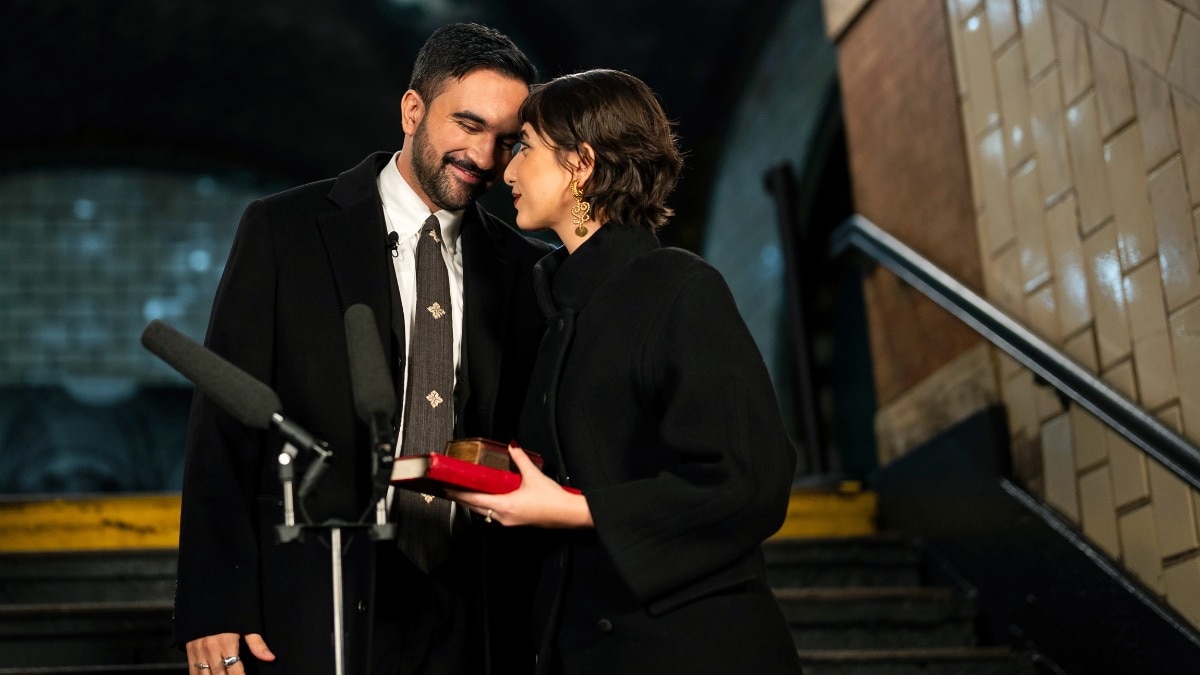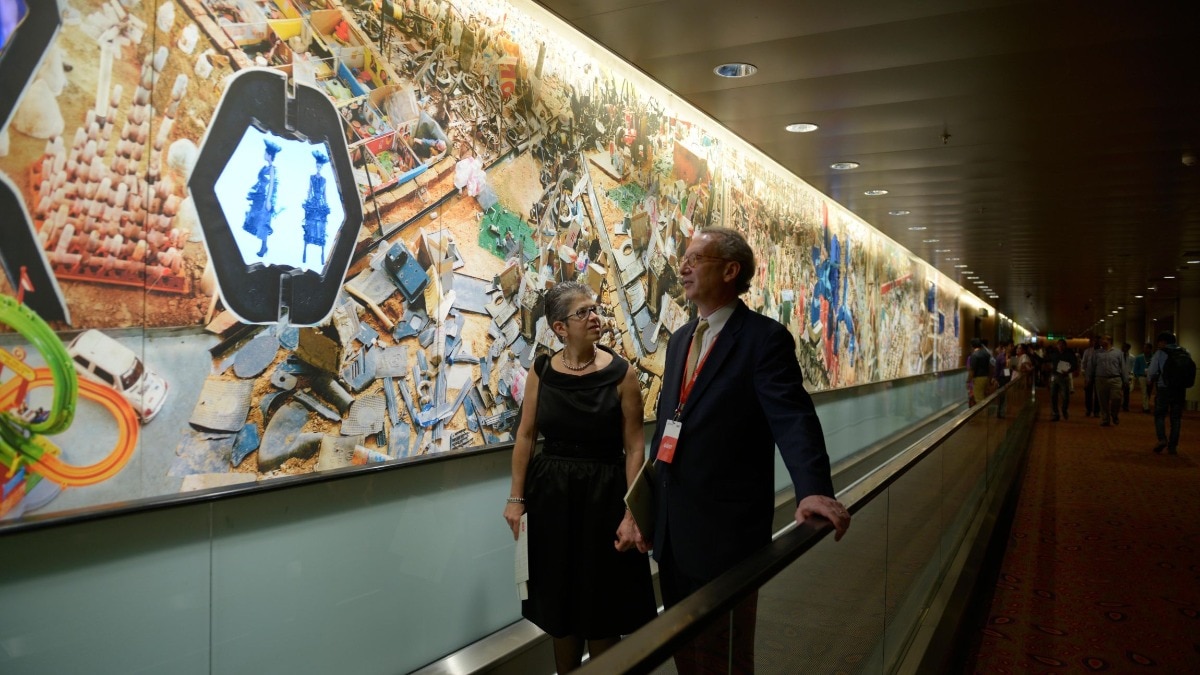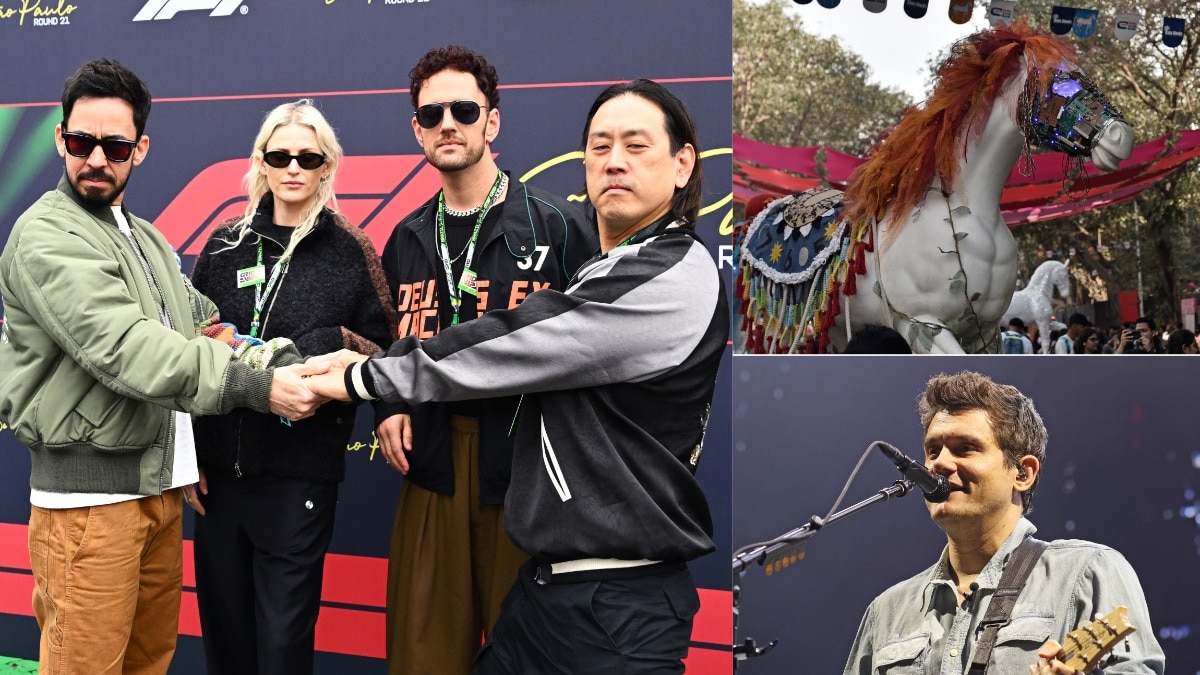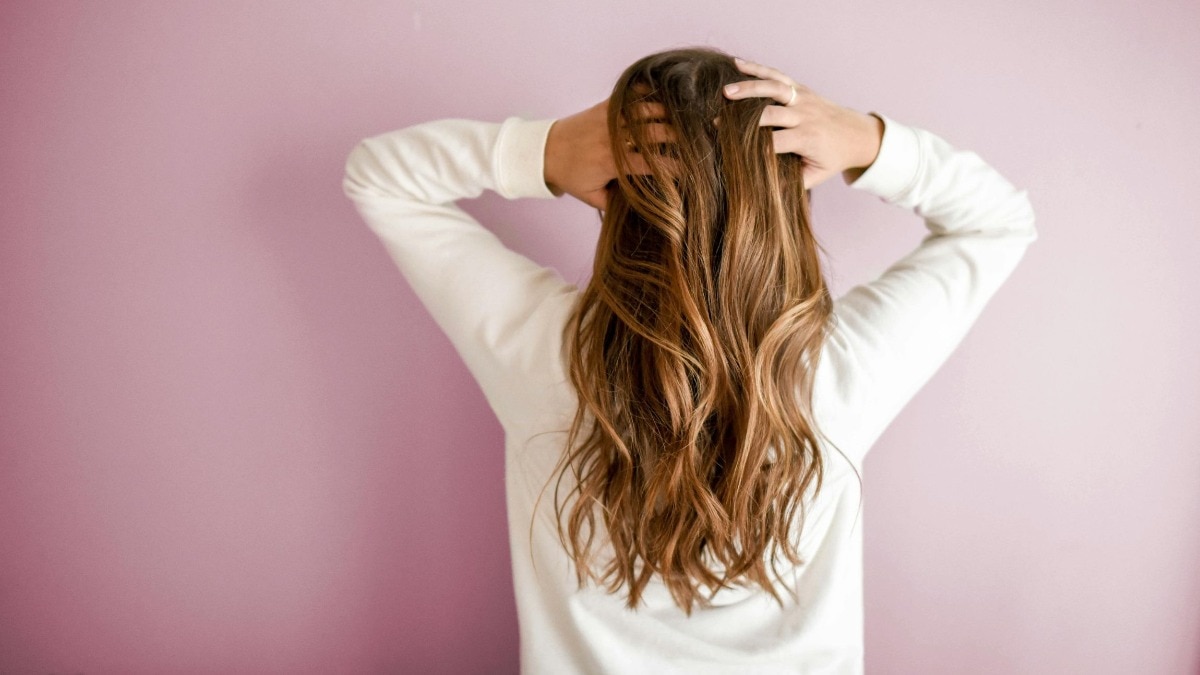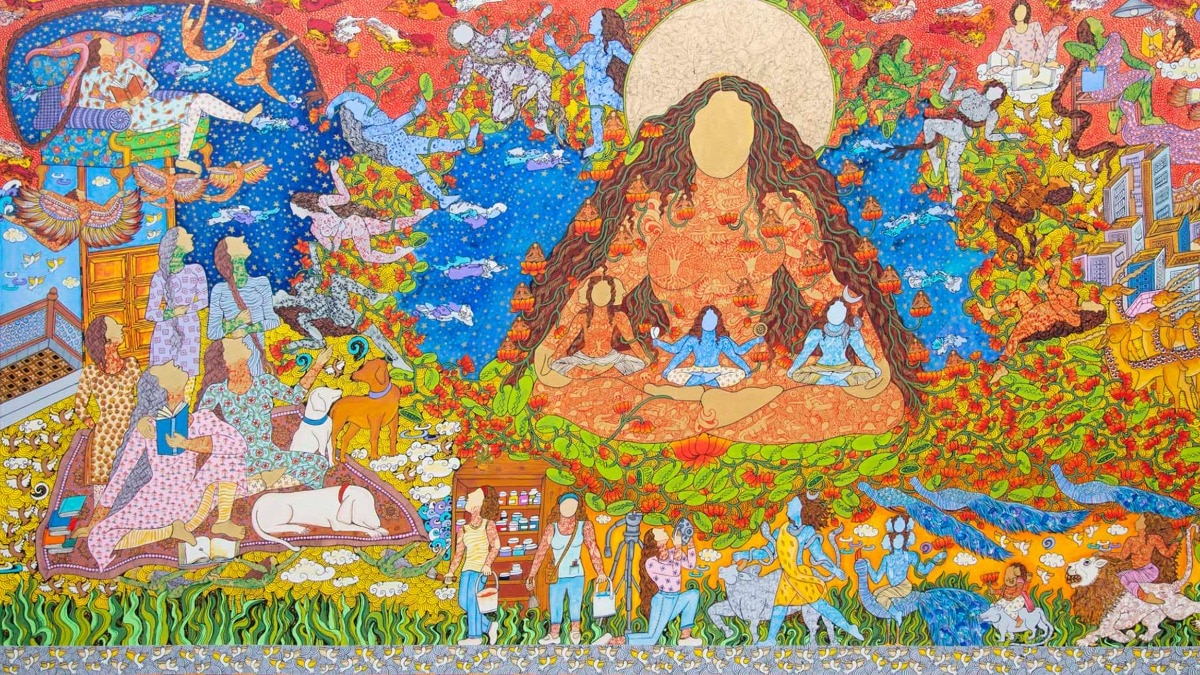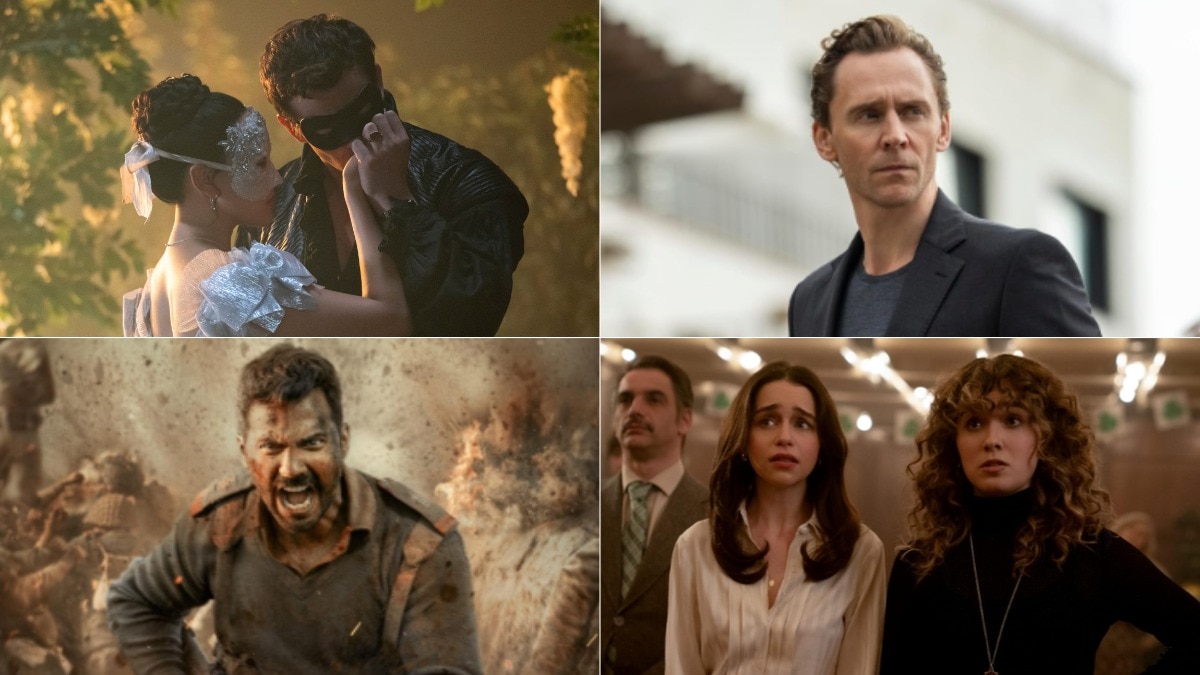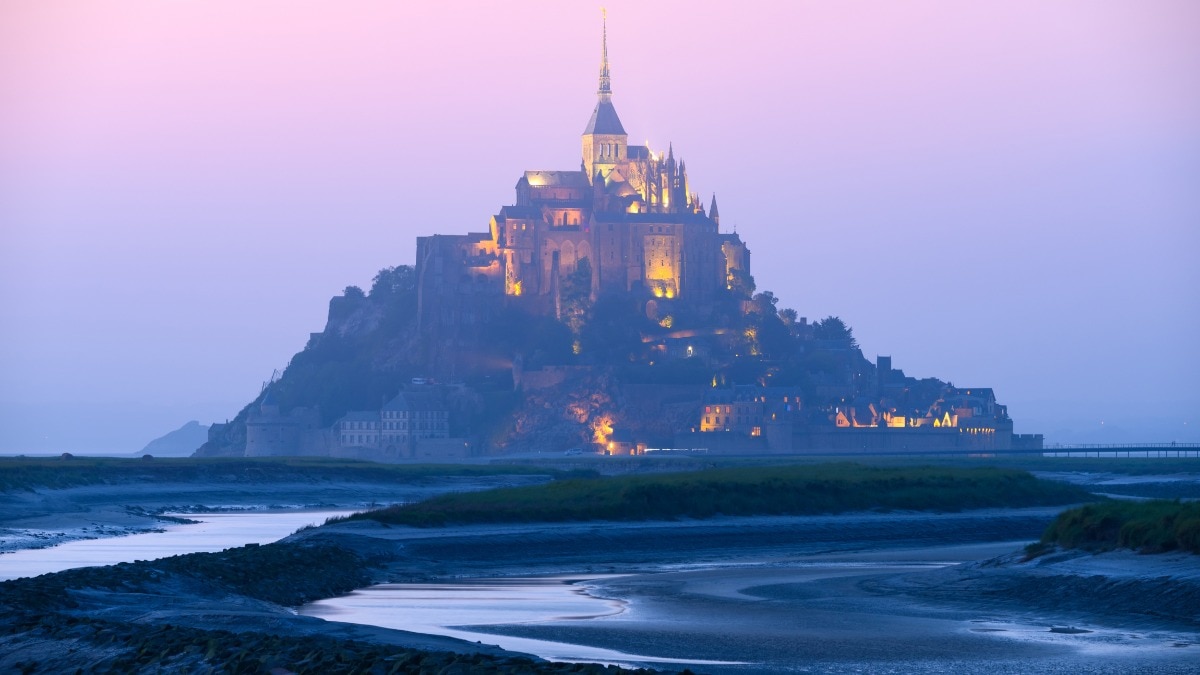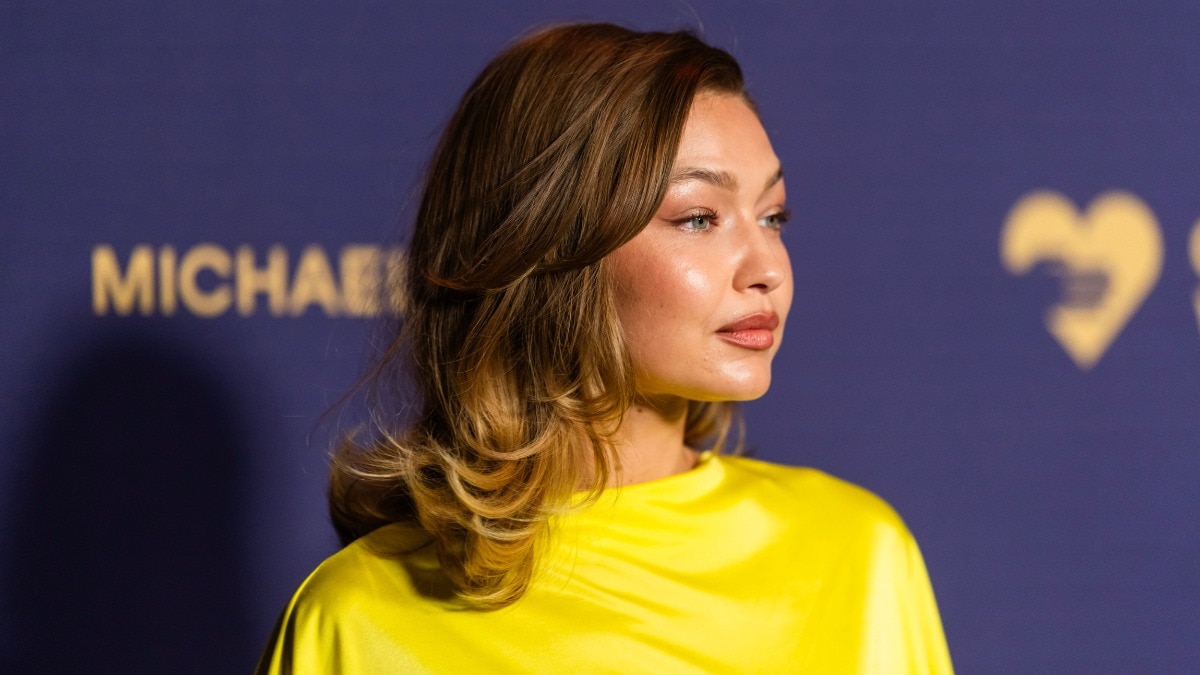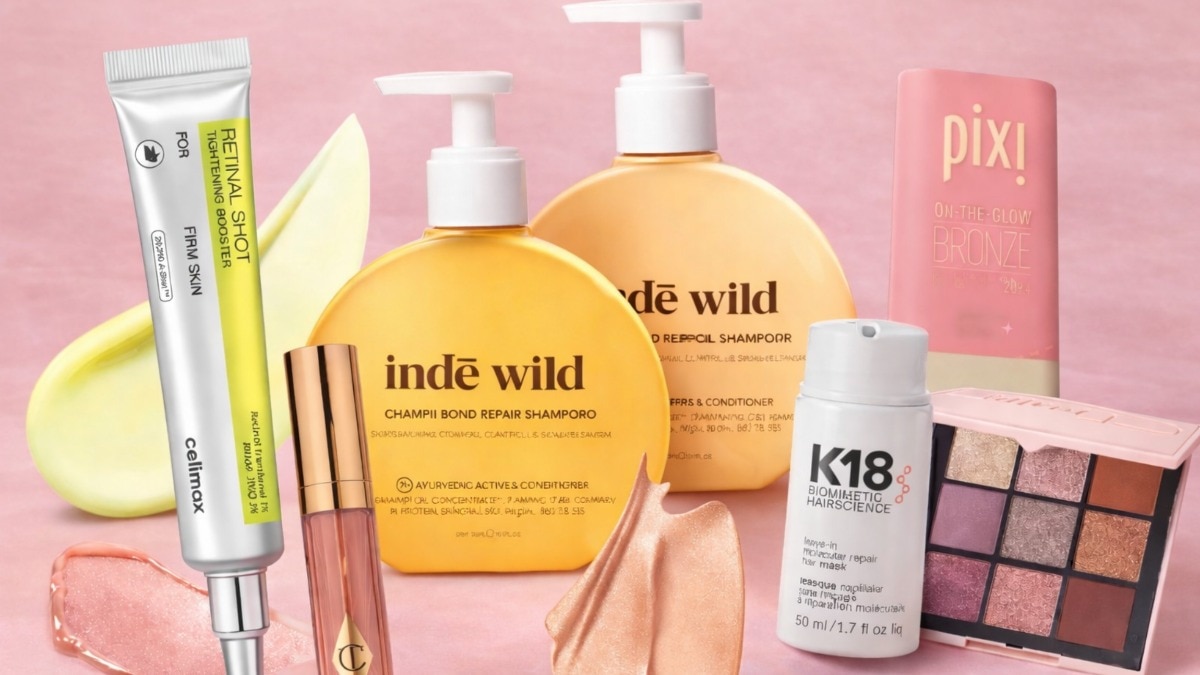Are AI runway shows the future of fashion?
Elon Musk's latest video on X—an AI fashion show—makes us wonder if digitisation will become the mainstay in the world of fashion and put models and 'old-school' ramp shows under threat. Leading stylists and designers allay these fears.


"Artificial intelligence is here to stay" is the ultimate truth of our times. It has made its presence felt in all areas of our lives and has slowly crept into the world of fashion. A fine example of how this tool can be leveraged for a remarkable display of digital creativity on the ramp is the video that Elon Musk shared on the social media platform X this morning. The CEO of Tesla and SpaceX shared an AI-generated video that showcases a host of political and world leaders—including Vladimir Putin, Joe Biden, Donald Trump, Kim Jong Un, Justin Trudeau, Xi Jinping and Narendra Modi—walking down the runway.
Modi is seen in a multicoloured outfit with geometric symbols. His look is completed with a pair of black sunglasses. On the other hand, Putin looks stylish in a Louis Vuitton suit, Biden is in shades and on a wheelchair, and Jong Un sports a baggy sweatshirt and large gold necklace. Not one to miss out on the fun, Musk is seen in a Tesla and X-themed superhero outfit that’s straight out of the future.
Musk's caption alongside the video read: “High time for an AI fashion show”. It got us thinking if AI-fashion show will truly be the way to go (if they aren’t already). Are these the future of fashion? We spoke to a few stylists and designers to know if this is the direction that the industry will be moving in and what it means for all the stakeholders involved.
All that works in favour of AI
There are a host of reasons why AI shows are more than just a fad, but whether they sustain over the long run is yet to be seen. Until then, as designer Kanika Goyal says, let’s enjoy what machine learning can bring to the world of fashion. “To begin with they (AI shows) offer unprecedented accessibility, allowing anyone with an internet connection to attend virtual runway shows. This democratises fashion, and allows reaching a global audience that was previously excluded from exclusive physical events. AI models can curate fashion experiences tailored to individual preferences, creating personalised runway shows that cater to unique tastes and styles. Virtual shows are also often more cost-effective than traditional physical shows, reducing expenses related to travel, venues, and logistics etc.”
Does it pose a threat to models and designers?
Decades ago, humans were worried about machines and computers taking over their jobs. Cut to the present day, we still see many models and supermodels walking down the ramp as showstoppers. Thus, there is no reason for models to feel threatened. Goyal says, “Models need not feel threatened by the rise of AI models. Although the latter will undoubtedly alter the fashion landscape, the emotional connection and personal touch that human models bring to the runway cannot be entirely replicated by AI. Rather than being replaced, models may find new roles and opportunities within an ever-evolving industry. The models embody a wide range of body types, ethnicities, and identities, promoting inclusivity and diversity in ways that AI models may find challenging.”
Dhruv Kapoor concurs. “In today’s age we are all encouraging a unique mix of talent portraying a diverse mix of personalities. For me, AI may be of great assistance but it misses the natural traits that one develops over time. I doubt the models should be threatened with these technological advancements. They have something extra over the computer-generated versions. I also feel with all this tech-centric everything, we will all eventually yearn for the unaltered experience and embrace all that rawness.”
Areas where AI will fall short
Fashion shows with models can achieve a powerful emotional impact and authenticity that AI shows might struggle to replicate. Goyal reminds us of a recent unforgettable fashion moment. “Coperni created a stunning dress live on Bella Hadid! This moment highlighted the blend of innovation and human artistry, capturing the audience's imagination in a way that AI models cannot.”
It is these emotions that are key to any experience. “AI may replicate and give rise to feelings temporarily, but a true,, wholesome experience has a more lasting impact. Furthermore, an actual show with models may help a brand build more trust within the market, unlike its artificially manufactured version (where all flaws are concealed or the appearance is further enhanced). Like a Gigi Hadid can never be replaced with an AI version. It is the emotion she generates, her persona, the things she does that makes her herself and that's what the audience is there for,” adds Kapoor.
And the verdict is...
While we continue to be amazed by how AI and its tools have revolutionised fashion, each of the designers that Bazaar India spoke to, remind us, in their own way that it is man who made the machine. According to stylist and designer, Divyak D’Souza there will never be a substitute for human emotion that a machine could replicate. “AI can’t be the future and can’t replace the human element in any artistic creation. While people are playing around with it, the beauty of art is putting feeling into the medium. Whether it is music or cinema, there is tangible human emotion that goes into it. I don’t think machines can replace that. While it’s fun right now as these apps allow you to do a lot, I don’t think they will ever replace the human touch.”
And it’s the tangible aspect of actually wearing a garment that gives an organic fashion show the edge. “At the end of the day, the art needs to be worn and people need to live in those clothes. The very fact that you have a real human wearing real textiles as outfits and ensembles is the point half made. The functionality of garment cannot be predicted by an AI or via digital image. AI shows may become popular as brands may look to save money and not care about the aesthetics. It may be a trend now, but people will get bored of it,” adds D’Souza, who hits the nail on the head with a quote we aren’t forgetting anytime soon. “Classic beauty is all about keeping it real. And it will never go out of style.”
Just how we live in a world where man and machine co-exist with one helping the other, expect the same in the world of fashion as well, says Goyal. “AI runway shows are likely to become a pivotal part of the fashion industry's future. The integration of AI presentations offers numerous advantages, such as tailored personalisation, and improved sustainability. However, while AI will play a prominent role, it is unlikely to completely eclipse traditional fashion shows. Instead, AI runway shows will complement existing formats, offering a hybrid showcase that merges the physical and virtual realms.”
Lead image: AI Fashion Week
Also read: To AI or not to AI in a world where ChatGPT looks like the present and the future
Also read: Highlights from the first-ever AI fashion week in New York City

